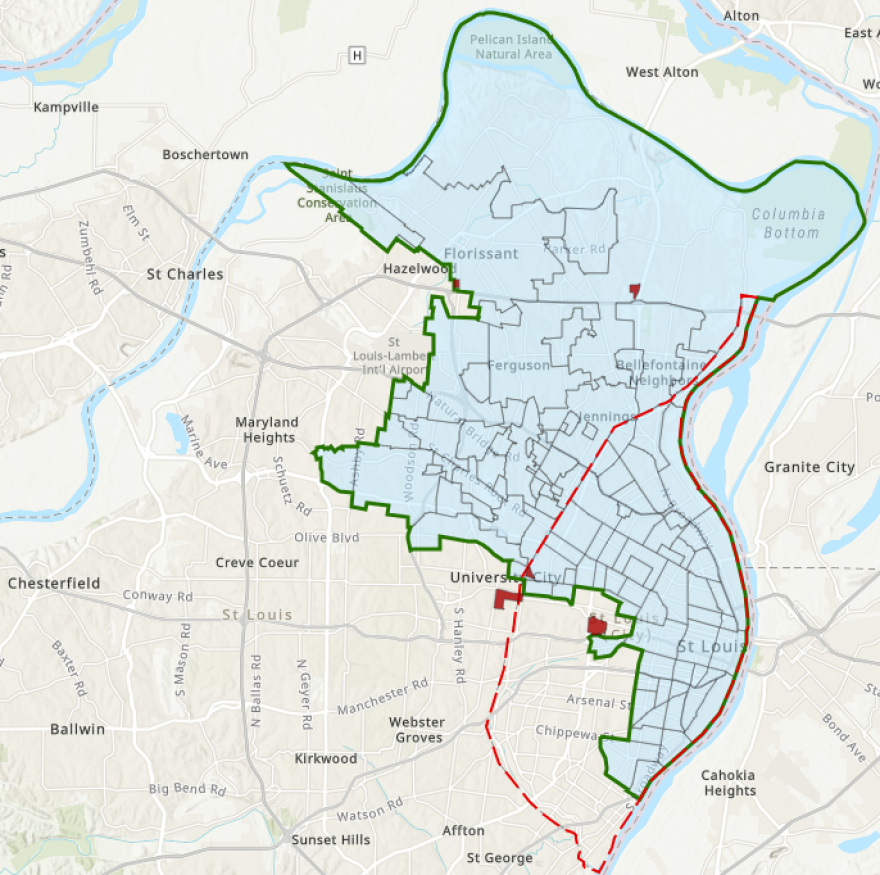Chelsea Clayton bought her first home with the help of a program backed by her employer.
“I’ve wanted to buy a home since I was a kid, but I always felt like there's so much you have to do to actually buy a home,” said Clayton, a respiratory care supervisor at Barnes-Jewish Hospital. “You have to have this huge lump sum of money, and I’m like: 'I don’t have that type of money.' So, it was always something I wanted to do. I just didn’t think it would be an option for me, to be honest.”
Clayton bought her home, which is four blocks north of the Delmar Loop in the city’s West End neighborhood, with the help of the Live Near Your Work Program.
The homeownership and neighborhood stabilization initiative provides $12,500 in forgivable home loans to any benefits-eligible employee of Washington University or BJC HealthCare.

This loan can be applied to any home within the program’s boundaries, and with a recent expansion, 14 St. Louis neighborhoods are now included. It’s also grown to cover parts of north St. Louis County, including Florissant and Ferguson, north University City, and more.
“The expanded regions in St. Louis city and north St. Louis County have been significantly impacted by systemic racial and spatial inequities," said Deidre Griffith, BJC vice president of Community Health Improvement. "By including these communities, we are working to create positive outcomes through equitable investment and economic development."
As the initiative grows, Clayton says she hopes more will apply. She’s lived in her home for five years and has noticed the stability it provides within her family and in her neighborhood.
“There's been so much growth, and I think when you have hardworking people moving into a neighborhood close to the hospital, it doesn't do anything but increase the value and make things better because you have people that care about where they live,” said Clayton. “I feel like it's a blessing, and I am so excited that it is being revamped, the news about it is being spread, because I feel like a lot of people don't know about it.”
Alderman Michael Browning, of the 9th Ward, bought his home in Forest Park Southeast with the help of the program. In 2014, Browning obtained a loan while working at Washington University. He believes the program has made a significant impact in Forest Park Southeast — where it began in 1997.
“It was a major benefit that allowed me and my wife to buy our first home, and really find that stability that has allowed us to grow our life ever since,” Browning said.

During his campaign, Browning knocked on doors to hear community concerns. Residents wanted to see improvements around trash, crime, schools and streets. These issues, which can be dependent on local tax revenue, improved as more people were able to buy homes in the area. He says these residents are happy to see the growth.
This year is the 50th anniversary of Washington University Medical Center Redevelopment Corporation, which includes the Live Near Your Work Program. The corporation has invested more than $60 million between the Central West End and Forest Park Southeast neighborhoods, generating $2.5 billion in private and public investments, Wash U officials said.
“I think that the real benefit of this is that it’s showing our commitment, getting into some neighborhoods and communities that have historic lack of access to capital," said Christopher Nolan, BJC director of Anchor Initiatives. "We have employees living in many of these communities, and we’re trying to think about, how do we leverage [ourselves] to have a positive impact. Again, it’s really looking beyond both of our four walls."






